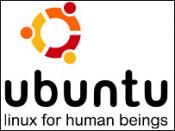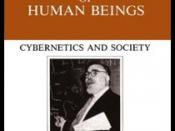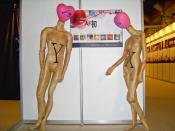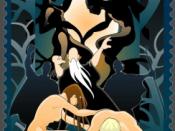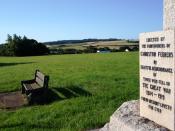Ignorance is bliss & a little knowledge is dangerous! An adage we have heard many a time since we were young and it as true as it was in the stone age. Human society comes with a lot of baggage, our myths, our history, our superstitions, our past. These stay with us and are a factor in shaping our future. Different decades have been known by different names, the jet age, the space age and so on ad infinitum. All these periods in our history have contributed to the development of human society in their own way by making things easier for us, by gathering information for us, by opening up sources of information for us. Unfortunately, this information has been limited to an elitist group of people, scientists, researchers, teachers, who in turn have disseminated this information to the common people, but while doing so they have added thier own baggage to it.
Information has been controlled, censored and made 'correct' for the common man, for you and for me. We are told in news shows, in newspapers, in magazines, in classrooms as to what is correct and what is wrong. The audience is spoon-fed opinions and information by the 'experts' because they know what is 'right'.
The 90's will be known as the age of the internet, a period when communication has been revolutionalised, a period when all the information we have collected over the years has finally become available to the common person. E-mail allows almost instantaneous communication, chat rooms provide forums for discussion and debate, web sites provide information about just about every topic under the sun, from what you can do with soap bubbles to ground breaking research in nuclear physics. The bottomline: information, pure and unadulterated. Human beings suddenly have the freedom to form opinions about information, they no longer have to rely upon 'experts' to tell them what something means.
Human society has faced a dilemna from the beginning of time, human beings resent change, for change jolts one out of set patterns, forces one to face different realities, realities with which we may not be comfortable. Society cannot survive without change, it is change which prevents society from stagnating,, from getting trapped in an endless cycle which can only lead to extinction. Information brings about change, without meaning to, without wanting to. The ability to assimilate information and to then use this information is what separates human beings from animals, and has made the human species supreme on this planet.
A lot of people are suddenly proclaiming that the fabric of society is in danger, they are running scared. WIth access to information comes knowledge and the power to discern not only between right and wrong but also to understand the many greys which make up our world. A number of the sacred cows of society are now under scrutiny, they must now undergo the test of sincerity, of truth. But then the truth is subjective, the truth is what we want it to be, the truth is what we want to believe in.
Some of these sacred cows will survive, some will not...most importantly human society will be the winner. This is something which has been true of any period in time, there was a time when people believed that the sun revolves around the earth and persecuted the man who said they were wrong: Galileo. Today Galileo is almost a household name. People have scoffed at the idea of the moon being made of anything but green cheese, I wonder what Neil Armstrong will have to say about that. I can go on and on and on.
The internet is giving us an oppurtunity to learn, to know, to understand, to be better human beings. There will be changes in the way we think, the things we consider important, but these will all result in a better world to stay in. There are some who would say that this is an optimistic way of looking at things. The fact of the matter is that they have the right to an opinion, I just hope that they have formed the opinion after a careful perusal of the facts on hand.
